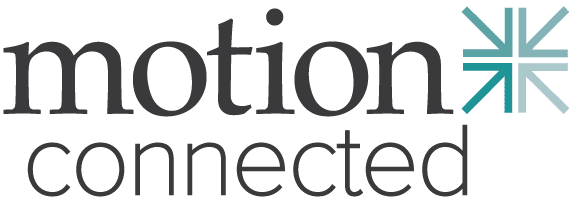It is clear that employees want – and expect – more in today’s workplace.
The pandemic created new challenges and stressors, while amplifying the concerns and struggles employees were already facing. Terms have been coined ‘The Great Resignation’ and ‘The Great Reshuffle’ to now ‘Quiet Quitting’, when really, is it just that employees want to be valued and seen?
There is a large opportunity – for organizations to build a more equitable workplace, for organizations to focus on the whole-person that is the employee, to create a more inclusive, diverse, flexible, and empathetic workforce and build a well workplace.
So what are today’s employees looking for?
1. A Human first culture
Employees are looking for a human-first culture that prioritizes PEOPLE over process.
A human-first culture puts their people first and values them without exception.
These organizations prioritize the actual person - know the employee beyond their role or title – and employees can feel this. And right now, they’re craving it.
A human-first culture trusts their employees, has robust communication channels, prioritizes employee feedback, values employee recognition, and consistently focuses on creating or maintaining a healthy culture. These organizations have high retention and engagement rates and are typically the ones you see at the top of the ‘Top Workplace’ awards.
2. Empathetic leaders
It is clear that employees want – and need – more from their leaders. It is critical for leaders to act and do much more to understand their employees - their needs, their stressors, what they are truly feeling and experiencing – and then demonstrate that they truly care about their wellbeing.
Employees want to know they are cared for, valued, and feel a part of something greater than themselves. Part of advocating for employees is showing respect and empathy. Leveraging empathy shows an employee their value and validates their presence in the workplace.
Empathy also allows employees to feel they are a part of something bigger – a company with great culture AND emotional connection that WORKS for their lifestyle, their family, and their career development, is one that will be successful in the long-term.
Companies that haven’t put in the effort to address the importance of empathy through things like leadership development, robust communication and a consistent focus on a positive culture – these are the organizations that are going to see more negative trends, especially in terms of engaging employees and retaining them over time.
3. Emotional balance
A recent report by Gallup finds that employees are more stressed than ever, with worry, anger, and sadness above pre-pandemic levels. Poor emotional balance leads to chronic stress, burnout and consequently higher turnover rates. 44% of employees report feeling stressed a lot the previous day.
According to the American Psychological Association’s 2021 Work and Well-being Survey, nearly 3 in 5 employees reported symptoms of burnout, including lack of interest, motivation, or energy and lack of effort at work. These are organizational risks, with the outcomes showing as top performer burnout, low engagement and high quit rates.
4. Strong social connections
Building a strong connection between employees is challenging in any environment, and even more so in today’s digital world. All of work has changed – whether it is remote, hybrid, in-office or some combination of. Yet we miss the connections that naturally occurred in the office setting - recent survey data from Business Wire reports that 43% of employees miss impromptu watercooler conversations and office chatter the most from working in the office.
Organizations and managers need to reframe team building from a passive action, to a proactive one that prioritizes building social capital at work and seeks to create a culture where social support thrives.
5. A focus on diversity, equity, and inclusion efforts
Today’s employees are homing in on what organizations are doing regarding DEI efforts – and not just the initiative, or a social post, they want action - and they want to see more.
Employees are looking for diverse voices, diverse teams, with tools and resources that create transparency, as well as an examination of implicit, explicit and structural biases. Organizations need to take a strategic approach to shaping the actual attitudes and behaviors in the workplace to make a meaningful impact.
An inclusive, diverse workplace culture fosters a sense of belonging, safety and purpose for employees, helping to increase productivity long-term.
6. Whole-health wellbeing
Finally, employees are looking for a focus on employee wellbeing, with wellbeing engrained into the organization’s workplace and organizational culture.
Wellbeing is a global initiative that focuses on the individual, whole-person, but also moves beyond a ‘wellness program’ into creating a positive employee experience through action, policy, leadership commitment and addressing systemic organizational imbalances.
A genuine, effective, consistent, wellbeing initiatives are key – and wellness can be the ribbon that ties an empathetic, inclusive, connected culture, together.
Article Sources:
- https://hbr.org/2022/06/stressed-sad-and-anxious-a-snapshot-of-the-global-workforce
- https://springhealth.com/blog/work-from-home-grief-guilt-loss-of-water-cooler-conversations/
- https://www.businesswire.com/news/home/20210323005490/en/Don%E2%80%99t-Zoom-in-Too-Close-30-of-Us-are-Wearing-PJs-in-Work-Meetings-Some-No-Pants-at-All%21
- https://wellbeing.lifeworks.com/blog/the-link-between-employee-wellbeing-and-diversity-equity-inclusion/
- https://www2.deloitte.com/us/en/insights/topics/leadership/employee-wellness-in-the-corporate-workplace.html
- https://www2.deloitte.com/us/en/insights/environmental-social-governance/employee-workplace-wellbeing-metrics.html
- https://www.mckinsey.com/mhi/our-insights/addressing-employee-burnout-are-you-solving-the-right-problem

